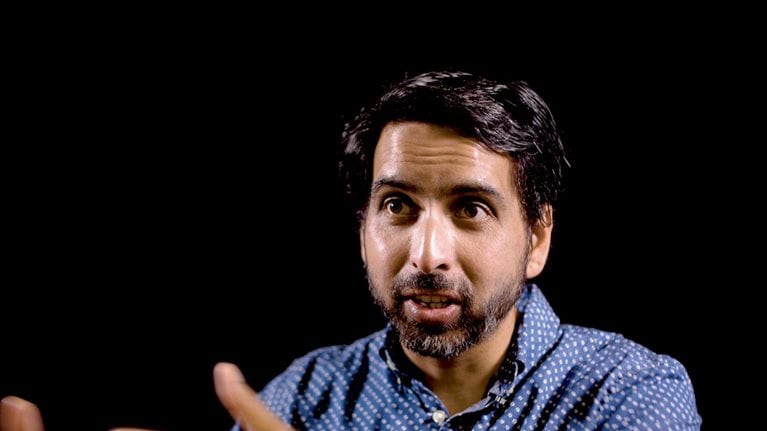Preparing children for the jobs of today will no longer be sufficient in the future of work. The skills necessary for a successful career are shifting, and organizations like Teach For All focus on creating leaders with the competencies, sense of agency, and awareness necessary to navigate a changing economy and solve increasingly complex problems.
In this interview with McKinsey’s Rik Kirkland, Wendy Kopp, CEO and cofounder of Teach For All and founder and former CEO of Teach For America, shares how her organization has shifted its orientation so it can better prepare tomorrow’s leaders with the skills of the future. She also discusses why businesses need to be equal stakeholders in the process. An edited version of her remarks follows.
Teach For All
Teach For All is a network of independent, locally led, governed, and funded organizations in 50 countries around the world. The organizations take a very similar approach to what Teach For America does in the United States, and what Teach First started doing 17 years ago. Each of these organizations is calling upon its country’s most promising future leaders to channel their energy into working with the most marginalized kids and then fostering their ongoing leadership as a force for change.
The most powerful thing we’ve seen all over the world is that folks join Teach For India, Enseña Chile, or Teach For Nigeria thinking, “This is just going to be two years.” And those two years are really important. But it turns out, it’s about those two years plus every year after the two years, and these folks go on to really help lead the changes we need to see. In fact, there are now a growing number of studies that look at what’s different about the people who are right on the admissions line for Teach For America, Teach For India, et cetera—some do the program, and some don’t. What’s different about the people who do, two years later? We’re seeing pretty significant effects in terms of reduction of bias and increase in empathy—and a significant change in their career trajectories. They come in thinking it is just two years, and really, they never leave the work. More than 70 percent stay full time in education, for a long term. And many others will be in policy or related fields like public health, legal services, et cetera.
Mission shift: Focusing on the world in 25 years
Our school systems were built hundreds of years ago, when the challenges, the opportunities, and the aspirations were different. And now, we’ve got all our educators working in the box of today’s system that was created for a totally different time. We’re seeing the growing concern on the part of global and local corporations around how to ensure that the kids coming out of school are ready for the world of work.
We came together a few years ago and asked the question, “What are we all working on together over the next 25 years? What’s the big, 25-year vision?” As part of that process, we engaged with futurists who predict where the world will be and listened to folks tell us just how much the economy is changing. We consulted all the McKinsey reports on this topic. We considered how much the planet is falling apart and the increasingly complex societal challenges that we face.

America’s future of work
That process brought into stark relief for us that if we’re not growing today’s kids as leaders—with the competencies, proficiencies, dispositions, and sense of agency and awareness necessary to navigate a changing economy and solve these increasingly complex problems—then there’s no hope. That process really shifted our orientation: from how to create equity and how to catch the most disadvantaged kids up to the most privileged kids to one of how to prepare all of our kids to have the skills necessary for the future.
Our thought is that—especially for the most marginalized kids, but really for all kids—if we’re really concerned about achieving equity, ensuring that our kids are ready for the changing economy, and making our society stronger, we need to really step back and reconsider the outcomes we’re working toward. And then we need to reorient the system so that it is preparing kids to be lifelong learners and problem solvers, with the broader set of socioemotional skills necessary to thrive and, at the same time, to solve our societal challenges, make our communities stronger, and build a better world.
What’s at stake—and the role for businesses
I think we need businesses to be equal stakeholders at the table. Given how the world is changing, there are things we want to have be true—in our communities, in our countries, and in our global society—in a way that’s deeply, locally rooted but also informed by what we know about global trends and by our global aspirations, as represented by the United Nation’s Sustainable Development Goals. Given all of that, we’ve come to think that, within any given local community, we need kids, families, educators, corporate employers, governmental leaders, and others to come together to ask what we want to be working toward.
We’ve been having these discussions around the world. People come together around a pretty ambitious and holistic vision for what they want to have be true for their kids. Then, we start working backwards from that and saying, “If we want kids to have meaningful careers and be actively engaged citizens, what does that mean for the outcomes we need to work toward?” Always, we need to orient much more broadly than toward the more narrow set of academic outcomes that we’ve been focused on. As critical as those will continue to be, we need to complement them with other things. I think that would be the most fundamentally important thing we could do. Then we’ll be working in partnership, and we’ll also realize we can’t do all this from within schools alone. We will need to be working with the corporate employers and other actors if we’re going to really get our kids on a path to where we’re all trying to get them to go.


